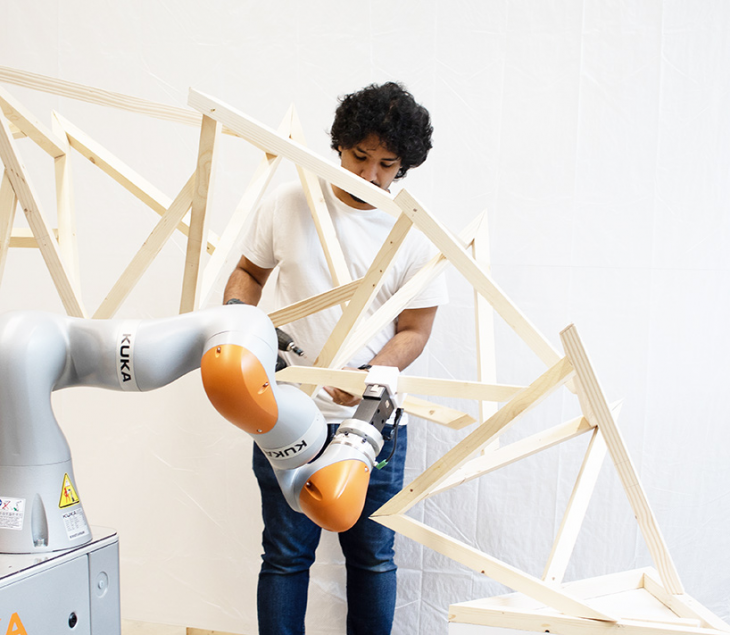IAAC – Master in Robotics and Advanced Construction
Workshop 3B
–
Faculty: Johannes Braumann
Faculty Assistant: Kunlajit Chadha
Industry collaborators: KUKA, Robots in Architecture
DISCRETIZING ROBOTIC PROCESSES
Syllabus
Machines and robots are programmed with zero tolerance. However, in the physical world, there are always inaccuracies that are very hard or even impossible to predict, such as the bending of wood as an anisotropic material. This makes it difficult to program complex robotic processes in advance and leads to bloated code that tries to cover every potential outcome.
 RWTH aachen university
RWTH aachen university
Aims
The goal of this unit is instead to split a large, complex task into a series of small, easily programmed tasks that rely on sensor feedback to inform their parameters. These tasks should be highly optimized to the robot’s capabilities, utilizing the robot’s strength and accuracy, while relying on manual assistance for steps that the robot cannot perform. Therefore, we need to consider safety, interaction and ergonomics as another design factor beyond the movement programming of the robot.
By adding these tasks on top of each other, we can create elaborate, adaptive material systems that inherently incorporate material tolerances into their design.
Learning objectives
Participants will be introduced to programming KUKA robotic arms through KUKA|prc and realtime robotic interfaces. We will explore ways on how to link both industrial as well as consumer sensor systems to the robot and its programming environment.